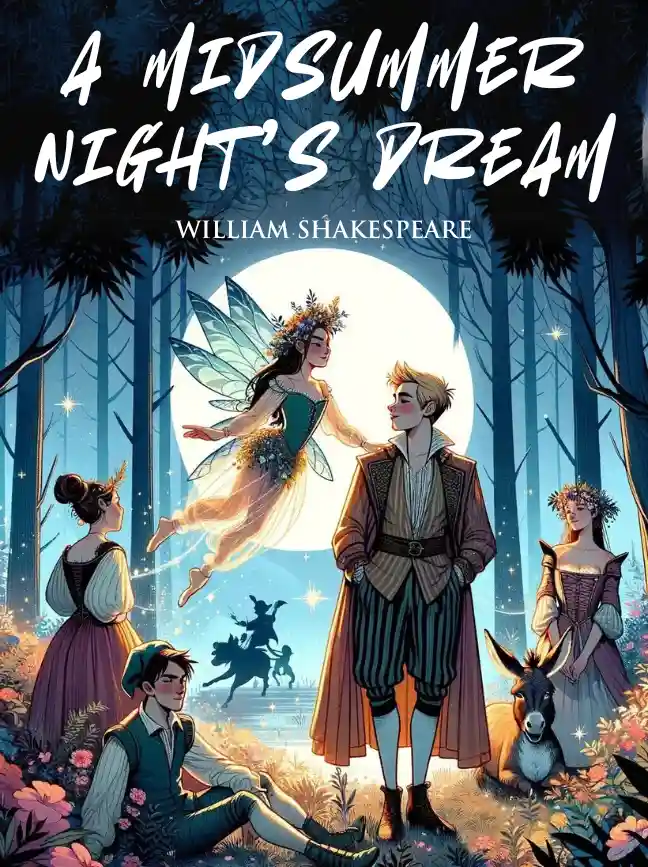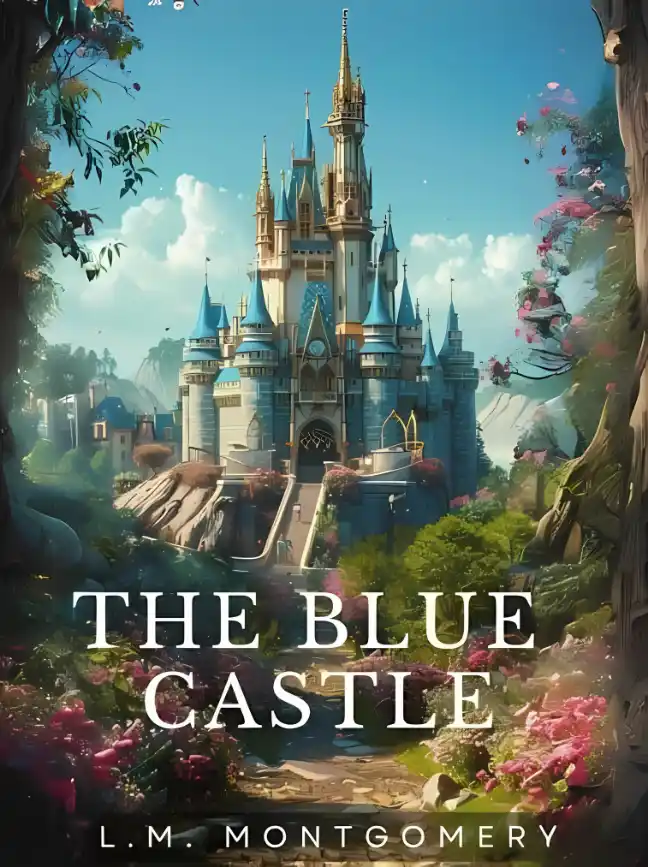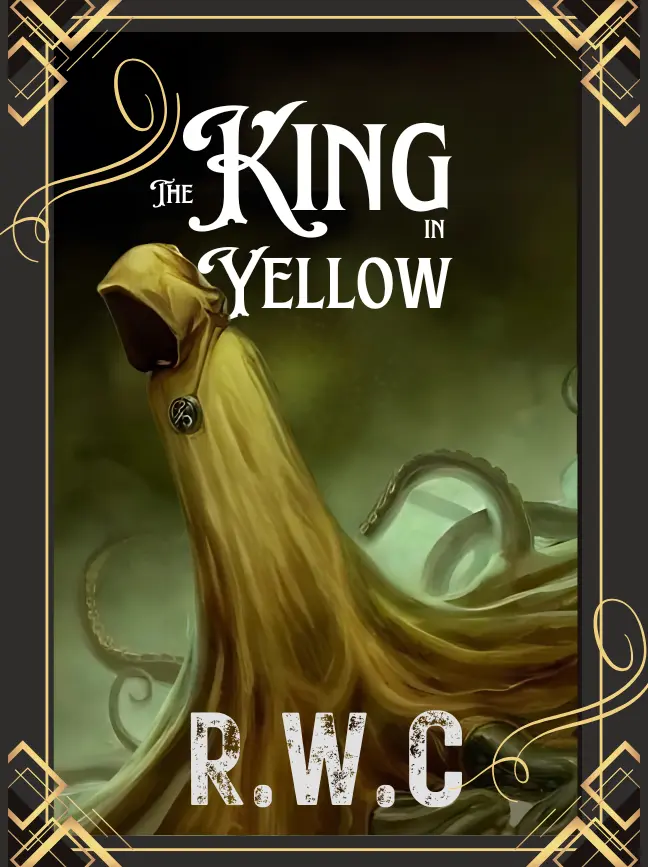The identity of certain characters may be a spoiler; use this guide with caution on your first read of the novel.
Note on the given name translations: Chinese characters may have many different readings. Each reading here is just one out of several
possible readings presented for your reference and should not be considered a definitive translation.
MAIN CHARACTERS
Xie Lian
“THANK,” “SYMPATHY” OR “LOVE”
Heavenly Title: Xianle, “Heaven’s Delight” (仙乐)
Four Famous Tales Title: The Prince Who Pleased God
Once the crown prince of the Kingdom of Xianle and the darling of the Heavens, now a very unlucky twice-fallen god who ekes out a meager
living collecting scraps. As his bad luck tends to affect those around him for the worse, Xie Lian has spent his last eight hundred years wandering in solitude. Still, he’s accepted his lonely lot in life, or at least seems to have a sense of humor about it. Even for the perpetually unlucky, there’s always potential for a chance encounter that can turn eight hundred years of
unhappiness around.
Xie Lian has seen and done many things over his very long life and originally ascended as a martial god. While it was his scrap-collecting that saw him ascend for the third time, Xie Lian’s feats of physicality are hardly anything to scoff at…though he’d sooner use them as part of a busking
performance than to win a fight.
Hua Cheng
“FLOWER,” “CITY”
Four Calamities Title: Crimson Rain Sought Flower
A fearsome king of ghosts and terror of the heavens. Dressed in his signature red, he controls vicious swarms of silver butterflies and wields a cursed scimitar known as Eming. He first gained infamy by defeating and
humiliating thirty-three gods in combat and burning down every last one of their temples in a single night, dooming them to obscurity and oblivion.
His power and wealth are unmatched in the Three Realms, and for this he has as many worshippers as he does enemies (with considerable
crossover between categories). Although he is an enigmatic figure who can shapeshift to any form to avoid detection, his butterflies have recently been sighted in the mortal realm…
San Lang
“THIRD,” “YOUTH”
A young man who ran away from home and, through a chance encounter, made Xie Lian’s acquaintance while hitching a ride on a passing ox cart. Dressed in fine clothing the color of blood-red maples and
knowledgeable on topics obscure and esoteric, it seems that he grew up in the lap of luxury. However, he does not hesitate to sleep on a single straw mat in Xie Lian’s humble home, nor to get his hands dirty doing household
chores. Truly a remarkable person in every respect. So why does he seem so suspicious?
HEAVENLY OFFICIALS & HEAVENLY ASSOCIATES
Feng Xin
“WIND,” “TRUST/FAITH”
Heavenly Title: Nan Yang, “Southern Sun” (南陽)
The martial god of the southeast. He has a short fuse and foul mouth (especially when it comes to his longstanding nemesis, Mu Qing), but is known to be a dutiful, hardworking god. He has a complicated history with Xie Lian: long ago, in their days in the kingdom of Xianle, he used to serve as Xie Lian’s bodyguard and was a close friend until circumstances drove them apart.
Fu Yao
“TO TAKE FLIGHT (ONE WHO IS AMBITIOUS)”
A junior official of the Middle Court, hailing from the Palace of Xuan Zhen (Mu Qing’s palace). He is cold, quick to judge, and even quicker to roll his eyes. Followers of General Mu Qing tend not to get on very well with followers of General Feng Xin, and Fu Yao is a proud follower of this trend; he is constantly fighting with Nan Feng.
Jun Wu
“LORD,” “I”
Heavenly Title: Shenwu, “Divine Might” (神武)
The Emperor of Heaven and strongest of the gods. He is composed and serene, and it is through his power and wisdom that the Heavens remain aloft—quite literally. Although the Heavens are full of schemers and gossipmongers, Jun Wu stands apart from such petty squabbles and is willing to listen to even the lowliest creatures to hear their pleas for justice.
Ling Wen
“INGENIOUS LITERATUS”
Heavenly Title: Ling Wen
The top civil god and also the most overworked. Unlike the majority of gods, she is addressed by her colleagues and most others by her heavenly title. She is one of the rare female civil gods and worked tirelessly (and thanklessly) for many years to earn her position. Ling Wen is exceedingly competent at all things bureaucratic, and her work keeps Heaven’s business running (mostly) smoothly. She is the creator and head admin of Heaven’s communication array.
Mu Qing
“YEARNING,” “AFFECTION”
Heavenly Title: Xuan Zhen, “Enigmatic Truth” (⽞真)
The martial god of the southwest. He has a short fuse and sharp
tongue (especially when it comes to his longstanding nemesis, Feng Xin), and is known for being cold, spiteful, and petty. He has a complicated history with Xie Lian: long ago, in their days in the kingdom of Xianle, he used to serve as Xie Lian’s personal servant and was a close friend until
circumstances drove them apart.
Nan Feng
“SOUTHERN,” “WIND”
A junior official of the Middle Court, hailing from the Palace of Nan Yang (Feng Xin’s palace). He is uptight, serious, and prone to outbursts of swearing when angered. Followers of General Feng Xin do not tend to get on very well with followers of General Mu Qing, and Nan Feng hardly
bucks the stereotype; he is constantly fighting with Fu Yao.
Pei Ming
SURNAME PEI, “TENDER TEA LEAVES”
Heavenly Title: Ming Guang, “Bright Illumination” (明光)
Four Famous Tales Title: The General Who Snapped His Sword
The Martial God of the North. General Pei is a powerful and popular god, and over the years he has gained a reputation as a womanizer. This reputation is deserved: Pei Ming’s ex-lovers are innumerable and hail from all the Three Realms. Pei Xiu is Pei Ming’s indirect descendant, and Pei Ming has taken him under his wing to help advance his career in the Heavens. And when General Pei sets his sights on a goal, he doesn’t take kindly to those who get in his way.
Pei Xiu
SURNAME PEI, “CONSTELLATION”
A martial god, and a distant (and indirect) descendant of Pei Ming.
He’s usually called “Little Pei” or “General Pei Junior” for this reason, and his own worship is tied to the worship of Pei Ming himself. He is often called in to clean up his ancestor’s messes, but regardless of the circumstances, he always maintains his composure with a polite yet detached air. Always cold and composed, Pei Xiu is a tactician through and through. There are rumors that his ascension to godhood occurred because he led the charge to slaughter a city.
Wind Master
Heavenly Title: Wind Master
The elemental master of wind, the Wind Master is as flighty and pushy as the element she commands, and as wealthy as she is generous with money. She possesses a strong sense of justice and will not be dissuaded by notions of propriety. She appears to be close friends with the lady in black accompanying her, despite the latter’s insistence to the contrary.
GHOST REALM & GHOST REALM ASSOCIATES
Banyue
“HALF-MOON”
Former state preceptor of the Kingdom of Banyue, now a wrath ghost. She is a small, frail young woman who nonetheless possesses the power to call upon and control deadly scorpion-snakes. Despite her gloomy disposition, she earnestly wishes to save others from suffering, even if it
means that she must suffer in their stead.
Kemo
“MILLSTONE”
A former general of the Kingdom of Banyue, now a wrath ghost. He bears great resentment against the State Preceptor of Banyue and great hatred for the long-dead kingdom that destroyed his own, even long after his death.
Qi Rong
“FACE OF SORROW”
Four Calamities Title: Night-Touring Green Lantern
One of the Four Calamities, also called the “Green Ghost.” Unlike
the other three Calamities, he’s actually only a wrath ghost, not a supreme. Gods and ghosts alike agree that he was only included in the group to bump up the number to an even four. (Also, he’s just that big a pest.)
Ship-Sinking Black Water
Four Calamities Title: Ship-Sinking Black Water
One of the Four Calamities. Ship-Sinking Black Water is a
mysterious and reclusive water ghost that rules the South Sea. Like Hua
Cheng, he won the bloody gauntlet at Mount Tonglu and wields the power of a Supreme ghost.
White No-Face
“WHITE NO-FACE”
Four Calamities Title: White-Clothed Calamity
One of the Four Calamities. Mysterious, cruel, and powerful enough to battle with the Heavenly Emperor himself—truly, a Supreme among Supremes. He destroyed the Kingdom of Xianle.
Xuan Ji
“DECLARE,” “CONCUBINE”
A former general of a fallen kingdom, now a wrath ghost known as
the ghost bride. She is obsessed with Pei Ming, who rejected her affections after she tried to take their physical-only relationship to the next level. Her fury at being scorned led to the gruesome deaths of many happy brides-to- be.
MORTAL REALM & MORTAL REALM ASSOCIATES
A-Zhao
“CLEAR” OR “OBVIOUS”
A local guide in the Banyue region who makes a living guiding merchant caravans through the treacherous landscape. Despite his taciturn nature, his guidance and knowledge of the area is immensely valuable to Xie Lian’s group.
Tian Sheng
“INATE,” OR “HEAVEN/SKY,” “BORN”
Youngest member of the merchant caravan traveling though the desert near Banyue. Impulsive but kindhearted.
Old Man Zheng
SURNAME ZHENG, “OLD UNCLE”
Elder of the merchant caravan. When he is stung by a scorpion-snake, a rescue trip is mounted to get the antivenom.
Xiao-Pengtou
“LITTLE,” SURNAME PENG, “HEAD”
A hotheaded young man who is determined to hunt down the ghost groom and get the reward money. Refuses to listen to reason.
Xiao-Ying
“LITTLE,” “FIREFLY”
A young human girl who assists Xie Lian in tracking down the ghost groom. She is softspoken and timid, but possesses a courageous, caring
spirit (and makeover skills that will get you from zero to wedding-ready in no time).
SENTIENT WEAPONS AND SPIRITUAL OBJECTS
Ruoye
“LIKE/AS IF,” “EVIL” OR “SWORD”
Xie Lian’s sentient strip of white silk. It is an earnest and energetic sort, if a bit nervous sometimes, and will go to great lengths to protect Xie Lian—quite literally, as it can stretch out to almost limitless dimensions.
Locations
Banyue
“HALF-MOON”
A long-dead, long-forgotten kingdom built upon a long-dead oasis in the Gobi Desert. It was well known in its heyday for its proud, mighty warriors. The ruined, decaying cityscape still has one monument that looms undaunted against the grind of centuries: the Sinner’s Pit, which served both as a jail and method of execution for Banyue’s worst criminals.
It was also infamous for its fearsome wildlife and unforgiving landscape. Sandstorms continue to be a frequent occurrence, and local guides warn that the deadly scorpion-snakes still lurk in the shadows to strike hapless travelers seeking refuge from the relentless desert sun.
Ghost Realm
The Ghost Realm is the home of almost all dead humans, and far less organized and bureaucratic than the Heavenly Realm. Ghosts may leave or be trapped away from the Ghost Realm under some circumstances, which
causes major problems for ordinary humans and gods alike.
Heavenly Realm
The Heavenly Capital is a divine city built upon the clouds. Amidst flowing streams and auspicious clouds, luxurious palaces dot the landscape, serving as the personal residences and offices of the gods. The Grand
Avenue of Divine Might serves as the realm’s main thoroughfare, and this road leads directly to the Palace of Divine Might—the Heavenly Emperor’s residence where court is held.
The Heavenly Court consists of two sub-courts: the Upper Court and the Middle Court. The Upper Court consists entirely of ascended gods,
while the Middle Court consists of officials who—while remarkable and skilled in their own right—have not yet ascended to godhood.
Mortal Realm
The realm of living humans. Often receives visitors from the other two realms.
Mount Tonglu
“COPPER KILN MOUNTAIN”
Mount Tonglu is a volcano, and the location of the City of Gu. Every few hundred years, tens of thousands of ghosts descend upon the city for a massive battle royale. Only two ghosts have ever survived the slaughter and made it out—one of those two was Hua Cheng.
Puqi Village
“WATER CHESTNUT”
A tiny village in the countryside, named for the water chestnuts (puqi) that grow in abundance nearby. While small and unsophisticated, its villagers are friendly and welcoming to weary travelers who wish to stay a while. The humble Puqi Shrine (under reconstruction, welcoming donations) can be found here, as well as its resident god, Xie Lian.
Yong’an
“ETERNAL PEACE”
A fallen but once-prosperous kingdom that bordered Banyue. The two nations frequently squabbled over borders and territory, and Yong’an eventually annihilated Banyue in an all-out war.
Name Guide
Names, Honorifics, & Titles
Diminutives, Nicknames, and Name Tags
XIAO-: A diminutive meaning “little.” Always a prefix.
-ER: A word for “son” or “child.” Added to a name, it expresses affection. Similar to calling someone “Little” or “Sonny.”
A-: Friendly diminutive. Always a prefix. Usually for monosyllabic names, or one syllable out of a two-syllable name.
Doubling a syllable of a person’s name can be a nickname, and has childish or cutesy connotations.
Family
DI: Younger brother or younger male friend. Can be used alone or as an honorific.
DIDI: Younger brother or a younger male friend. Casual.
GE: Familiar way to refer to an older brother or older male friend, used by someone substantially younger or of lower status. Can be used alone or with the person’s name.
GEGE: Familiar way to refer to an older brother or an older male friend, used by someone substantially younger or of lower status. Has a cutesier feel than “ge.”
JIE: Older sister or older female friend. Also a familiar address by someone of lower status to refer to another in a higher position of power. Can be used alone or as an honorific.
JIEJIE: Familiar way to refer to an older sister or an older female friend, used by someone substantially younger or of lower status. Has a cutesier feel than “jie,” and rarely used by older males.
JIUJIU: Uncle (maternal, biological).
MEI: Younger sister or younger female friend. Can be used alone or as an honorific.
MEIMEI: Younger sister or an unrelated younger female friend.
Casual.
SHUFU: Uncle (paternal, biological). Formal address for one’s father’s younger brother.
SHUSHU: An affectionate version of “Shufu.”
XIAOSHU: Little uncle.
XIONG: Older brother. Generally used as an honorific. Formal, but also used informally between male friends of equal status.
XIONGZHANG: Very formal/respectable address for elder brother. For direct blood-related only, and for any older brother, not just the eldest.
XIANSHENG: “Husband” or “Mister” in modern usage; historical usage was broadly “teacher.”
If multiple relatives in the same category are present (multiple older brothers, for example) everyone is assigned a number in order of birthdate, starting with the eldest as number one, the second oldest as number two, etc. These numbers are then used to differentiate one person from another. This goes for all of the categories above, whether it’s siblings, cousins, aunts, uncles, and so on.
EXAMPLES:
If you have three older brothers, the oldest would be referred to as “da-ge,” the second oldest “er-ge,” and the third oldest “san-ge.”
If you have two younger brothers you (as the oldest) would be number one. Your second-youngest brother would be “er-di,” and the youngest of your two younger brothers would be “san-di.”
Cultivation and Martial Arts
GENERAL
GONGZI: Young master of an affluent household
-JUN: A suffix meaning “lord” or “gentleman.” May be combined with other titles.
SECTS
SHIDI: Younger martial brother. For junior male members of one’s own sect.
SHIFU: Teacher/master. For one’s master in one’s own sect. Gender neutral. Mostly interchangeable with Shizun.
SHIJIE: Older martial sister. For senior female members of one’s own
sect.
SHIMEI: Younger martial sister. For junior female members of one’s
own sect.
SHISHU: The younger martial brother of one’s master.
SHIXIONG: Older martial brother. For senior male members of one’s own sect.
SHIZUN: Honorific address (as opposed to shifu) of teacher/master.
Cultivators and Immortals
DAOREN: Daoist cultivator
DAOZHANG: A polite address for daoist cultivators, equivalent to “Mr.
Cultivator.” Can be used alone as a title or attached to someone’s family name—for example, one could refer to Xie Lian as “Daozhang” or “Xie Daozhang.”
YUANJUN: Title for high class female Daoist deity. Can be used alone as a title or as a suffix.
ZHENJUN: Title for average male Daoist deity. Can be used alone as a title or as a suffix.
Pronunciation Guide
Mandarin Chinese is the official state language of China. It is a tonal language, so correct pronunciation is vital to being understood!
Below is a simplified guide on the pronunciation of select character names and terms from MXTX’s series to help get you started.
Series Names
SCUM VILLAIN’S SELF-SAVING SYSTEM (REN ZHA FAN PAI ZI JIU XI TONG):
ren jaa faan pie zzh zioh she tone
GRANDMASTER OF DEMONIC CULTIVATION (MO DAO ZU SHI):
mwuh dow zoo shrr
HEAVEN OFFICIAL’S BLESSING (TIAN GUAN CI FU):
tee-yan gwen tsz fuu
Character Names
SHEN QINGQIU: Shhen Ching-cheeoh
LUO BINGHE: Loo-uh Bing-huhh WEI WUXIAN: Way Woo-shee-ahn LAN WANGJI: Lahn Wong-gee
XIE LIAN: Shee-yay Lee-yan
HUA CHENG: Hoo-wah Cch-yung
XIAO-: shee-ow
-ER: ahrr
A-: ah
GONGZI: gong-zzh
DAOZHANG: dow-jon
-JUN: june DIDI: dee-dee GEGE: guh-guh
JIEJIE: gee-ay-gee-ay
MEIMEI: may-may
-XIONG: shong
Terms
DANMEI: dann-may WUXIA: woo-sheeah XIANXIA: sheeyan-sheeah QI: chee
General Consonants & Vowels X: similar to English sh (sheep) Q: similar to English ch (charm) C: similar to English ts (pants) IU: yoh
UO: wuh ZHI: jrr CHI: chrr SHI: shrr RI: rrr ZI: zzz CI: tsz SI: ssz
U: When u follows a y, j, q, or x, the sound is actually ü, pronounced
like eee with your lips rounded like ooo. This applies for yu, yuan, jun, etc.








